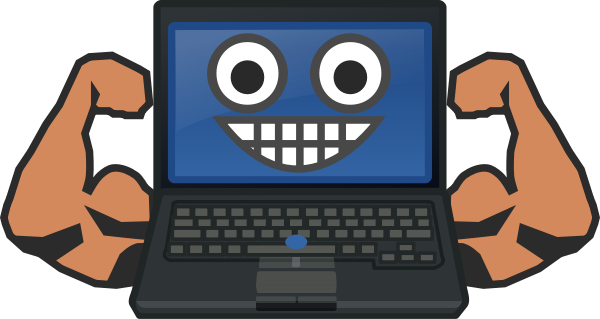| Previous
Page |
PCLinuxOS
Magazine |
PCLinuxOS |
Article List |
Disclaimer |
Next Page |
Short Topix: Amazon Kindle Now Supports EPUB Files ... Sorta |
|
by Paul Arnote (parnote)
 To make help for mental illness more accessible, various mental health apps have sprung up on mobile platforms. And, with the COVID lockdowns, the mental health crisis is greater than it ever has been. One such app that pretty much "leads the way" among the mental health apps is called "BetterHelp." BUT THE BETTERHELP APP RATED AS ONE OF THE LOWEST IN PROTECTING USER PRIVACY among the 32 apps tested and rated by Mozilla's "Privacy Not Included" buyer's guide. In fact, 28 of the 32 apps tested failed to meet the "grade." Only Wysa, PTSD Coach, Headspace, and Glorify were not issued a warning label in the guide. All of the others, including BetterHelp and TalkSpace, fell short in protecting privileged and private user data. To quote the late and great Gomer Pyle ... Surprise! Surprise! Surprise! The great internet Hoover vacuum of personal and private data, GOOGLE, HAS NOW MADE IT POSSIBLE FOR USERS TO REMOVE SELECT PRIVATE/PERSONAL INFORMATION FROM SEARCH RESULTS, according to an article on NPR. You can choose to have your address, email address, phone number, bank account, credit card numbers, medical documents and some other personal/private information to be stripped from search results. Interested? Click here to access the Google tool to remove your selected information from Google search results. Careful though that so many people don't overload the server and crash it!
If ever you needed another reason to avoid systemd like the plague, here's another. MICROSOFT (of all people) HAS DISCOVERED A FLAW IN THE LINUX DESKTOP THAT GIVES ROOT PRIVILEGES TO UNTRUSTED USERS, according to an article on Ars Technica. Fortunately for PCLinuxOS users, the flaw/exploit only appears to affect Linux users who
Of course, once a threat actor has root access to your computer, all of your data is at risk. GOOGLE HAS FIXED AN ACTIVELY EXPLOITED ANDROID KERNEL BUG THAT ALLOWED ESCALATION OF PRIVILEGES, according to an article on Bleeping Computer. Of course, the Android kernel is a modified Linux kernel. The exploit, CVE-2021-2260, was initially discovered in January 2022, but it has taken a few months to fix in Google's own Android kernel. MICROSOFT HAS STEPPED UP ACTIONS ON DISRUPTING THE RUSSIAN STATE SPONSORED HACKING GROUP STRONTIUM by taking control (court approved) of seven internet domains the group was using to launch cyberattacks on Ukrainian institutions, and "sinkholing" activity from those servers, according to a Microsoft blog. THE FBI'S CYBER DIVISION ISSUED A FLASH (URGENT MESSAGE) DETAILING HOW SOME CYBERCRIMINALS ARE SCRAPING CUSTOMER CREDIT CARD NUMBERS FROM U.S. RETAILERS' WEB SITES. The hackers are injecting malicious PHP code into the business's online payment/checkout pages, according to the flash (PDF). You can also read more about the issue in the TechRepublic article. If you thought your iPhone was secure because it has been shut off, think again. It seems that Edward Snowden was correct in his assertion that when your phone is "turned off," it really isn't off. According to an article on TechRadar, HACKERS CAN RUN AND INSTALL MALWARE ON YOUR IPHONE, EVEN WHEN IT'S "TURNED OFF." When you turn off your iPhone, it actually enters a "low power mode," which allows services such as Bluetooth, NFC, and/or ultra-wideband to continue running. These services run 24/7, so that on-device wallets and keys that use NFC can still operate, even if/when a user's battery is depleted. MILLIONS OF MOBILE DEVICES THAT USE THE BLUETOOTH LOW ENERGY (BLE) PROTOCOL COULD BE AT RISK, according to an article on TomsGuide. Initially designed by Nokia in 2006, the BLE protocol allows users to experience lower power consumption with similar range when used with Bluetooth devices. Researchers at NCC Group were able to fool the BLE protocol into believing that they were near (in range of) the device, and exploit the flaw, even though they were physically hundreds of miles away. No fix is yet available for the exploit. The suggestions to protect yourself, at this time, is to disable passive lock functionality, and to turn off Bluetooth services whenever they aren't needed. New Superconductor Breakthrough Could Mean 400X Speed Increase For Computers  Ever since its discovery in 1911, it was thought to be impossible to create superconductivity without magnetic fields. But, according to an article on the Tweak Town website, the creation of the Josephson Diode allowed researchers from Delft University of Technology to create one-way superconductivity. Superconductivity allows current to travel along its path without resistance, potentially speeding up electronics hundreds of times. As recently as the 1970s (ok ... half a century ago), scientists declared that "without non-reciprocal superconductivity, a computer running on superconductors is impossible." Said Associate professor Mazhar Ali during a Q&A with Phys.org, "Technology which was previously only possible using semi-conductors can now potentially be made with superconductors using this building block. This includes faster computers, as in computers with up to terahertz speed, which is 300 to 400 times faster than the computers we are now using." "Centralized computation is really how the world works now-a-days. Any and all intensive computation is done at centralized facilities where localization adds huge benefits in terms of power management, heat management, etc. The existing infrastructure could be adapted without too much cost to work with Josephson diode based electronics. There is a very real chance, if the challenges discussed in the other question are overcome, that this will revolutionize centralized and supercomputing," Ali said regarding how realistic it would be for computers to make use of superconducting. And who said Moore's law is dead? Are you ready for processors capable of terahertz processing speeds? It might not be as far off as you think. Amazon Kindle Now Supports EPUB Files ... Sorta  One of the LARGEST and earliest ebook distributors, Amazon has only supported MOBI and AZW files (the latter is an Amazon-branded version of the MOBI file format). That is, until now, according to an article on The Verge. While virtually EVERY OTHER ebook reader manufacturer ... Sony, Barnes & Noble, Kobo, PocketBook, etc. ... decided to back the EPUB format for ebooks, Amazon decided to blaze its own trail for the past 15 years. The Amazon Kindle ebook reader first came out in 2007. Part of the reason is because Amazon bought the French company Mobipocket back in 2005. Might as well make good use of your investments, right? Up until now, Kindle users couldn't load or read ebooks in the EPUB format. And technically speaking, they still can't. While still lacking native support for the EPUB format, an update to the "Send to Kindle" function will allow Kindle users to access EPUB files. The Send to Kindle function will convert EPUB books to an Amazon-specific digital ebook format. This is a huge step forward for Kindle users. Previously, their only recourse would have been to try to find the book title they wanted in MOBI format, or to use an external program such as Calibre to convert the EPUB to MOBI format. Now, the new Send to Kindle function eliminates the middle step of manually converting the EPUB file to one that the Kindle likes (namely, MOBI or AZW). The converted file format is named KF8, I suppose to differentiate imported EPUB files from the other formats supported by the Kindle. I'm a bit amazed that Amazon is still sticking with this path. Maybe they are expecting the masses to stay asleep and not wander or ask questions. With the proliferation of tablets and ebook reading apps for them, I would think that there are many, many users who would find it easy to sidestep Amazon's restrictions. They could just use the ebook reading apps on their tablets, giving them access to virtually every format of ebook files. Scientists Discover Enzyme That Can Break Down PET Plastics In Days Instead Of Centuries  PET (polyethylene terephthalate) plastics account for 12 percent of global waste. Swirling around in the Pacific Ocean is an "island" of plastic waste larger than the island of Manhattan. And, unless something is done, these mounds of plastics are going to be with us for many generations to come. On their own, these plastics take centuries to break down and decompose. But, according to an article on Vice, researchers at the University of Texas at Austin have used AI and machine learning to create mutations in proteins that can break down PET plastics in days, instead of the usual centuries it would normally take. The process is called depolymerization, and the enzymes can break the PET down into its original monomers, which can then be reused to make virgin plastics for use in other items. As an added benefit, the new plastics are made without using any petroleum resources. The team of scientists have named their new enzyme FAST-PETase. That is an acronym for "functional, active, stable and tolerant PETase." Maybe, just maybe, we won't have to leave mountains of plastic detritus for our children, grandchildren, great-grandchildren, great-great-grandchildren, and great-great-great-grandchildren to deal with. PCLinuxOS Magazine Monthly Roundup  Google engineers are working on encrypted hibernation support for the Linux kernel as part of offering strong hibernation support for Google Chromebook usage, according to an article on Phoronix. Apple is testing future iPhone models that replace the current Lightning charging port with the more prevalent USB-C connector, according to people with knowledge of the situation, a move that could help the company conform with looming European regulations, according to an article on Bloomberg. An experiment in the Space Plants Lab at the University of Florida, has just shown that farming with lunar soil is possible, detailed in a study just published in Communications Biology. So, just maybe any future lunar colonies can be somewhat self-sufficient. For years China's censors have relied on a trusted tool kit to control the country's internet. They have deleted posts, suspended accounts, blocked keywords, and arrested the most outspoken. Now they are trying a new trick: displaying social media users' locations beneath posts, according to an article in the New York Times. |


